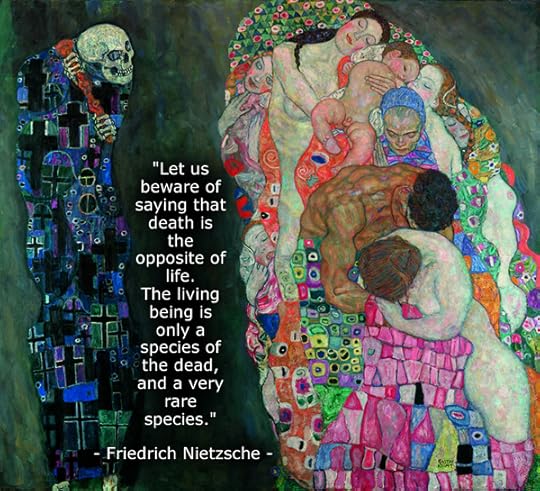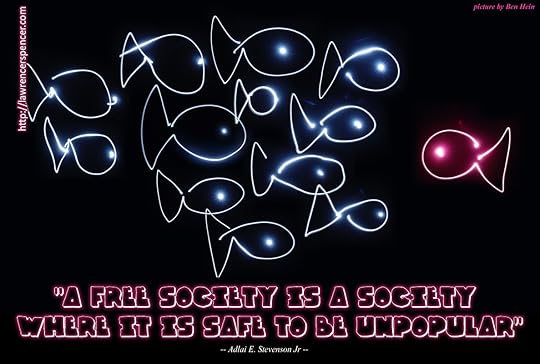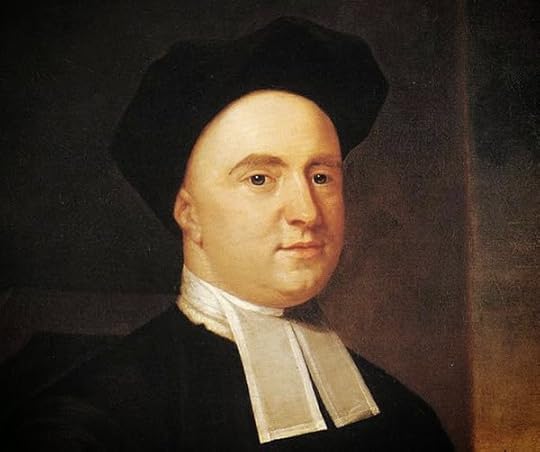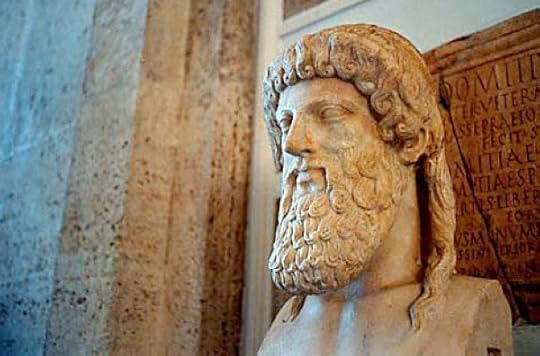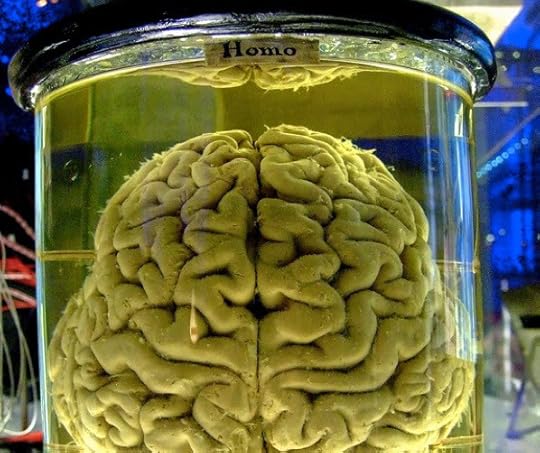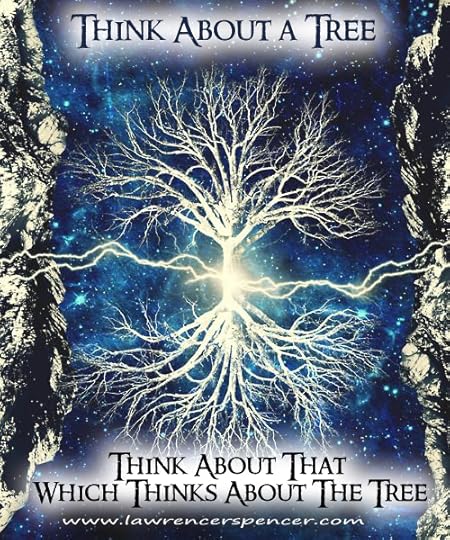Lawrence R. Spencer's Blog, page 20
December 31, 2024
DOUBT EVERTHING
Republished by Blog Post Promoter
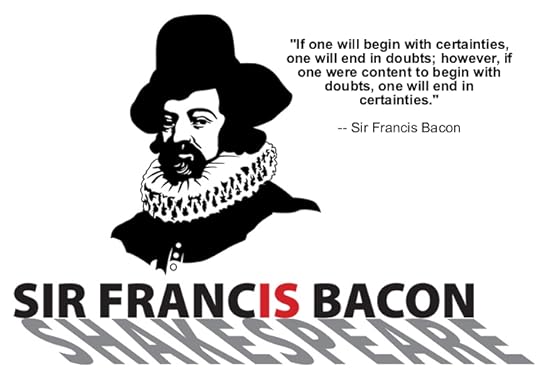 On planet Earth, it’s really not a good idea to “believe” or to accept ANYTHING on the surface. As safe bet is to DOUBT EVERYTHING.
On planet Earth, it’s really not a good idea to “believe” or to accept ANYTHING on the surface. As safe bet is to DOUBT EVERYTHING.
This is especially true when it to do with “royalty” or “leaders” of governments. I very excellent example of this illustrated by the discovery that Sir Francis Bacon was the “bastard” son of Queen Elizabeth I of England. (7 September 1533 – 24 March 1603) This is compounded by the discovery that Sir Francis Bacon actually wrote the plays attributed to Bill Shakespeare!
Sir Francis Bacon was a scientist, philosopher, courtier, diplomat, essayist, historian and successful politician, who served as Solicitor General (1607), Attorney General (1613) and Lord Chancellor (1618). Those who subscribe to the theory that Sir Francis Bacon wrote the Shakespeare work generally refer to themselves as “Baconians”, while dubbing those who maintain the orthodox view that William Shakespeare of Stratford wrote them “Stratfordians”.
The idea was first proposed by Delia Bacon in lectures and conversations with intellectuals in America and Britain. William Henry Smith was the first to publish the theory in a letter to Lord Ellesmere published in the form of a sixteen-page pamphlet entitled Was Lord Bacon the Author of Shakespeare’s Plays? Smith suggested that several letters to and from Francis Bacon hinted at his authorship. A year later, both Smith and Delia Bacon published books expounding the Baconian theory. In Delia Bacon’s work, “Shakespeare” was represented as a group of writers, including Francis Bacon, Sir Walter Raleigh and Edmund Spenser, whose agenda was to propagate an anti-monarchial system of philosophy by secreting it in the text.
Baconian theory developed a new twist in the writings of Orville Ward Owen and Elizabeth Wells Gallup. Owen’s book Sir Francis Bacon’s Cipher Story (1893–5) claimed to have discovered a secret history of the Elizabethan era hidden in cipher-form in Bacon/Shakespeare’s works. The most remarkable revelation was that Bacon was the son of Queen Elizabeth. According to Owen, Bacon revealed that Elizabeth was secretly married to Robert Dudley, Earl of Leicester, who fathered both Bacon himself and Robert Devereux, 2nd Earl of Essex, the latter ruthlessly executed by his own mother in 1601. Bacon was the true heir to the throne of England, but had been excluded from his rightful place. This tragic life-story was the secret hidden in the plays.
Baconian theory had received support from a number of high profile individuals. Mark Twain showed an inclination for it in his essay Is Shakespeare Dead? Friedrich Nietzsche expressed interest in and gave credence to the Baconian theory in his writings. The German mathematician Georg Cantor believed that Shakespeare was Bacon. He eventually published two pamphlets supporting the theory in 1896 and 1897. By 1900 leading Baconians were asserting that their cause would soon be won.
In 1916 a judge in Chicago ruled in a civil trial that Bacon was the true author of the Shakespeare canon!
_____________________________________
READ MORE ABOUT BACON vs. SHAKESPEARE HERE: http://en.wikipedia.org/wiki/Baconian_theory
December 30, 2024
THE PURPOSE OF WAR
Republished by Blog Post Promoter
 “Old Empire” operatives act as an unseen influence on international bankers. The banks are operated covertly as a non-combatant provocateur to covertly promote and finance weapons and warfare between the nations of Earth. Warfare is an internal mechanism of control over the inmate population.
The purpose of the senseless genocide and carnage of wars financed by these international banks is to prevent the IS-BEs of Earth from sharing open communication, cooperate together in activities that might enable IS-BEs to prosper, become enlightened, and escape their imprisonment.”
“Old Empire” operatives act as an unseen influence on international bankers. The banks are operated covertly as a non-combatant provocateur to covertly promote and finance weapons and warfare between the nations of Earth. Warfare is an internal mechanism of control over the inmate population.
The purpose of the senseless genocide and carnage of wars financed by these international banks is to prevent the IS-BEs of Earth from sharing open communication, cooperate together in activities that might enable IS-BEs to prosper, become enlightened, and escape their imprisonment.”
December 29, 2024
REVENGE OF THE DOG
Republished by Blog Post Promoter
Dog With Electric Collar from Steve Baker on Vimeo.
REVENGE OF THE BARKING DOG
December 27, 2024
ANA VIDOVIC
Republished by Blog Post Promoter
Ana Vidović (born 8 November 1980 in Karlovac, SR Croatia, Yugoslavia) is one of the youngest virtuoso guitarists in the world. She started playing guitar at the age of five, inspired by her brother Viktor. By the age of 11 she was performing internationally, and at 13 became the youngest student to attend the prestigious National Musical Academy in Zagreb where she studied with Professor Istvan Romer. Vidović’s reputation in Europe led to an invitation to study at the Peabody Conservatory in Baltimore, U.S., with Manuel Barrueco, from where she graduated in May 2003. In an interview, she has stated that she plays lots of scales and uses a metronome.[1]
Vidović has won an impressive number of prizes and international competitions all over the world. These include first prizes in the Albert Augustine International Competition in Bath, England, the Fernando Sor competition in Rome, Italy, and the Francisco Tárrega competition in Benicasim, Spain. Other top prizes include the Eurovision Competition for Young Artists, the Mauro Giuliani competition in Italy, the Printemps de la Guitare in Belgium, and the Young Concert Artists International Auditions in New York.
Ana Vidović has given over one thousand public performances since first taking the stage in 1988. Her international performance career includes recitals in London, Paris, Vienna, Salzburg, Rome, Budapest, China, Warsaw, Tel Aviv, Oslo, Copenhagen, Toronto, Baltimore, San Francisco, Knoxville, Houston, Austin, Dallas, St. Louis, Jakarta,and Zuidlaren.
(from Wikipedia, the free encyclopedia)
LIVING BEINGS
Republished by Blog Post Promoter
Excerpt from the book 1,001 THINGS TO DO WHILE YOU’RE DEAD, by Lawrence R. Spencer:
“PRETEND YOU ARE SAINT PETER AT THE PEARLY GATES PASSING JUDGMENT ON PEOPLE WHO WANT TO GET INTO HEAVEN. (See Footnote) [i]
A lot of people die every day. Recent global estimates of deaths are as follow: 53 million people die each year, 146,357 people die each day, 6,098 people die each hour, 102 people die each minute.
Simple arithmetic, based on these figures, makes two things apparent: 1) a lot of people die 2) at this time, a lot more people are being born than dying. In fact, there are 128 million births per year. That’s 353,015 births per day or 14,709 births each hour! The numbers get larger every day.
One good theoretical question to ask is this: if each soul or spirit gets only 1 body per lifetime, (even if every single one was reincarnated) where are all of the extra spirits coming from?
If you read the book ALIEN INTERVIEW, as suggested earlier, the answer to this question is covered there.
PRETEND YOU ARE THE DEVIL AT THE GATES OF HELL COUNTING YOUR NEW RECRUITS.
The Gates of Hell must be a very, very busy place. Think of the paperwork! Historically, killing each other has been the second most popular pastime on Earth. (Apparently, having sex is number one.) In fact, in all of recorded human history there has been only 11 years when a war was NOT being fought somewhere on Earth.
Either way, tons of people arrive at the Gates of Hell for a good reason, i.e. murder. It probably won’t take you long to figure out that Earth IS Hell.
For example, during World War II about 70,000,000 people were killed in only 4 years! Here are a few more statistics concerning man’s favorite sport:
105 Million: Total 20th century war deaths
100 Million: Africans killed by “good” Christian Europeans during the African slave trade
90 Million: Native Americans slaughtered by “good” Christians, i.e. European invaders
60-80 Million: Murdered by Chinese Communist Party Chairman Mao Zedong and his minions
40 Million: People slain by Genghis Khan and his minions in Asia
30 Million: Slaughtered in the Taiping Rebellion (See Footnote) [ii]
30 Million: Deaths caused by Joseph Stalin and his minions in Purges / Famines in Communist Russia
30 Million: Deaths caused by minions of Mao Tse Tung due to Famines in Communist China
Etc., etc., etc..
This makes your job of handing out punishment for the sins of those arriving at the Gates of Hell pretty easy: tell everyone to go back to Earth and try not to kill so many people next time — including all the other life forms on 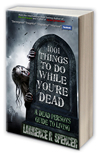 the planet! In fact, dare them not to kill anyone or anything.
the planet! In fact, dare them not to kill anyone or anything.
This situation raises an odd question: if more than twice as many people are being born each year than are dying, “Where are all the spirits coming from that are creating the global population boom on Earth?”
Fortunately, as suggested earlier, the Top Secret transcripts published in the book ALIEN INTERVIEW answer this question also.”
________________________________________
FOOTNOTES:[i] Saint Peter The pearly gates is an informal name for the gateway to the Heaven of Christian belief. It is inspired by the description of the New Jerusalem in Book of Revelation 21:21 The twelve gates were twelve pearls, each gate being made from a single pearl.
The image of the gates in popular culture is a set of large, white or wrought-iron gates in the clouds, guarded by Saint Peter (the keeper of the “keys to the kingdom”); those not fit to enter heaven are denied entrance at the gates, and thus descend into Hell.
[ii] The Taiping Rebellion was a widespread civil war in southern China from 1850 to 1864, led by heterodox Christian convert Hong Xiuquan, against the ruling Qing Dynasty. About 20 million people died, mainly civilians, in one of the deadliest military conflicts in history.
Hong established the Taiping Heavenly Kingdom (Chinese: 太平天囯 pinyin: Tàipíng Tiān Guó), officially the “Heavenly Kingdom of Great Peace”, with its capital at Nanjing. The Kingdom’s Army controlled large parts of southern China, at its height containing about 30 million people. The rebels attempted social reforms and the replacement of Confucianism, Buddhism and Chinese folk religion with a form of Christianity. Troops were nicknamed the Long hair (長毛, pinyin: cháng máo).
The Taiping areas were besieged by Qing forces throughout most of the rebellion. The Qing government defeated the rebellion with the eventual aid of French and British forces.
In the 20th century, China’s communist leader Mao Zedong glorified the Taipings as early heroic revolutionaries against a corrupt. More recently, a total rethinking has occurred in China on the destruction that the rebellion had caused to the Chinese nation, plus the dangers of radical religiosity.
December 25, 2024
A FREE SOCIETY
Republished by Blog Post Promoter
Adlai Ewing Stevenson II (pronounced /ˈædleɪ/; February 5, 1900 – July 14, 1965) was an American politician, noted for his intellectual demeanor, eloquent oratory, and promotion of liberal causes in the Democratic Party. He served as the 31st Governor of Illinois, and received the Democratic Party’s nomination for president in1952 and 1956; both times he was defeated by Republican Dwight D. Eisenhower. He sought the Democratic presidential nomination for a third time in the election of 1960, but was defeated by Senator John F. Kennedy of Massachusetts. After his election, President Kennedy appointed Stevenson as the Ambassador to the United Nations; he served from 1961 to 1965.
December 24, 2024
BONEPONY
Republished by Blog Post Promoter
The Best Little Band You Probably Never Heard Of….
December 23, 2024
SOME THEORIES OF REALITY
Republished by Blog Post Promoter
Every sentient being seems to have their own unique point of view or ideas of what “reality” is or is not, or could be, maybe, theoretically. Here is part of an article by Anna LeMind about a variety of philosophical theories of “reality” that you may find useful as alternatives to your own views of “reality”. What is your “theory of reality”? — LRSSolipsism Solipsism is a philosophical theory, which asserts that nothing exists but the individual’s consciousness. At first it seems silly – and who generally got it into his head completely deny the existence of the world around us? Except when you put your mind to it, it really is impossible to verify anything but your own consciousness.Don’t you believe me? Think a moment and think of all the possible dreams that you have experienced in your life. Is it not possible that everything around you is nothing but an incredibly intricate dream? But we have people and things around us that we cannot doubt, because we can hear, see, smell, taste and feel them, right? Yes, and no. People who take
LSD
, for example, say that they can touch the most convincing hallucinations, but we do not claim that their visions are “reality”. Your dreams simulate sensations as well, after all, what you perceive is what different sections of your brain tell you to.
Solipsism is a philosophical theory, which asserts that nothing exists but the individual’s consciousness. At first it seems silly – and who generally got it into his head completely deny the existence of the world around us? Except when you put your mind to it, it really is impossible to verify anything but your own consciousness.Don’t you believe me? Think a moment and think of all the possible dreams that you have experienced in your life. Is it not possible that everything around you is nothing but an incredibly intricate dream? But we have people and things around us that we cannot doubt, because we can hear, see, smell, taste and feel them, right? Yes, and no. People who take
LSD
, for example, say that they can touch the most convincing hallucinations, but we do not claim that their visions are “reality”. Your dreams simulate sensations as well, after all, what you perceive is what different sections of your brain tell you to.As a result, which parts of existence can we not doubt? None. Not the chicken we ate for dinner or the keyboard beneath our fingers. Each of us can only be sure in his own thoughts.
Idealist PhilosophyGeorge Berkeley, the father of Idealism, argued that everything exists as an idea in someone’s mind. Berkley discovered that some of his comrades considered his theory stupid. The story goes that one of his detractors kicked a stone with his eyes closed and said, “There I’ve disproved it!”
The idea being that if the stone really only exists in his imagination, he could not have kicked it with his eyes closed. Refutation of Berkeley is hard to understand, especially in these days. He argued that there is an omnipotent and omnipresent God, who sees all and all at once. Realistic, or not?
Plato and LogosEverybody has heard of Plato. He is the world’s most famous philosopher. Like all philosophers he had a few things to say about reality. He argued that beyond our perceived reality there lies a world of “perfect” forms. Everything that we see is just a shade, an imitation of how things truly are. He argued that by studying philosophy we have a chance of catching a glimpse of how things truly are, of discovering the perfect forms of everything we perceive.
In addition to this stunning statement, Plato, being a monist, said that everything is made of a single substance. Which means (according to him) that diamonds, gold and dog feces all consist of the same basic material, but in a different form, which, with science’s discovery of atoms and molecules, has been proven true to an extent.
PresentismTime is something that we perceive as a matter of course, if we view it at the moment, we usually divide it into past, present and future. Presentism argues that the past and the future are imagined concepts, while only the present is real.
In other words, today’s breakfast and every word of this article will cease to exist after you have read it, until you open it again. The future is just as imaginary, because time cannot exist before and after it happened, as claimed by St. Augustine.
EternalismEnternalism is the exact opposite of presentism. This is a philosophical theory that says that time is multi-layered. It can be compared to a pound cake (however, unlike the time, a biscuit is not up for philosophical debate). All time exists simultaneously, but the measurement is determined by the observer. What he sees depends on which point he is looking at.
Thus dinosaurs, World War II and Justin Bieber all exist simultaneously but can only be observed from a specific location. If one takes this view of reality then the future is hopeless and the deterministic free will is illusory.
The Brain in a JarThe “brain in a jar” thought experiment is a question discussed by thinkers and scientists, who, like most people, believe that human’s understanding of reality depends solely on his subjective feelings.
So, what is the debate? Imagine that you are just a brain in a jar that is run by aliens or mad scientists. How would you know? And can you truly deny the possibility that this is your reality?
This is a modern interpretation of the Cartesian evil demon problem. This thought experiment leads to the same conclusion: we cannot confirm the actual existence of anything except our consciousness. If this seems to sound reminiscent of the movie “The Matrix“, it is only because this idea was part of the very basis of the story. Unfortunately, in reality we have no red pills…
The Multiverse TheoryAnyone who has not spent the last ten years on a desert island, has at least once heard of “the multiverse”, or parallel universes. As many of us have seen, parallel words, in theory, are worlds very similar to ours, with little (or in some cases, large) changes or differences. The multiverse theory speculates that there could exist an infinite number of these alternate realities.
What’s the point? In a parallel reality you have already killed the dinosaurs, and you are lying under the ground at a depth of eight feet (because that’s what happened there.) In the other you might be a powerful dictator. In another you might never have even been born since your parents never met. Now that’s a memorable image.
Fictional RealismThis is the most fascinating branch of multiverse theory. Superman is real. Yes, some of you would probably choose a different story, for argument’s sake, Harry Potter might be real too. This branch of the theory argues that given an infinite number of universes, everything must exist somewhere. So, all of our favorite fiction and fantasy may be descriptive of an alternate universe, one where all the right pieces came in to place to make it happen.
PhenomenalismEveryone is interested in what happens to things when we aren’t looking at them. Scientists have carefully studied this problem and some of them came to a simple conclusion – they disappear. Well, not quite like this. Phenomenalist philosophers believe that objects only exist as a phenomenon of consciousness. So, your laptop is only here while you are aware of, and believe in its existence, but when you turn away from it, it ceases to exist until you or someone else interacts with it. There is no existence without perception. This is the root of phenomenalism.
_____________________________
LRS — The article above is re-posted from http://in5d.com/10-mind-blowing-theories-that-will-change-your-perception-of-the-world/
About the author:
Anna LeMind is the owner and lead editor of the website Learning-mind.com, and a staff writer for The Mind Unleashed.
December 22, 2024
FEMALE PHOTO COMPOSITES BY NATION
December 15, 2024
TREE THOUGHT
Republished by Blog Post Promoter
“Thought is a force – a manifestation of energy – having a magnet-like power of attraction. You say “I” feel; “I” think; “I” believe; “I” know; “I” will; etc., etc. Now which is the Real Self? The Mental States just mentioned, or the “I” which is the subject or Real Cause of the mental phenomena? It is not the Mind that knows, but the “I” which uses the Mind in order to know. “
~ William Walker Atkinson ~


